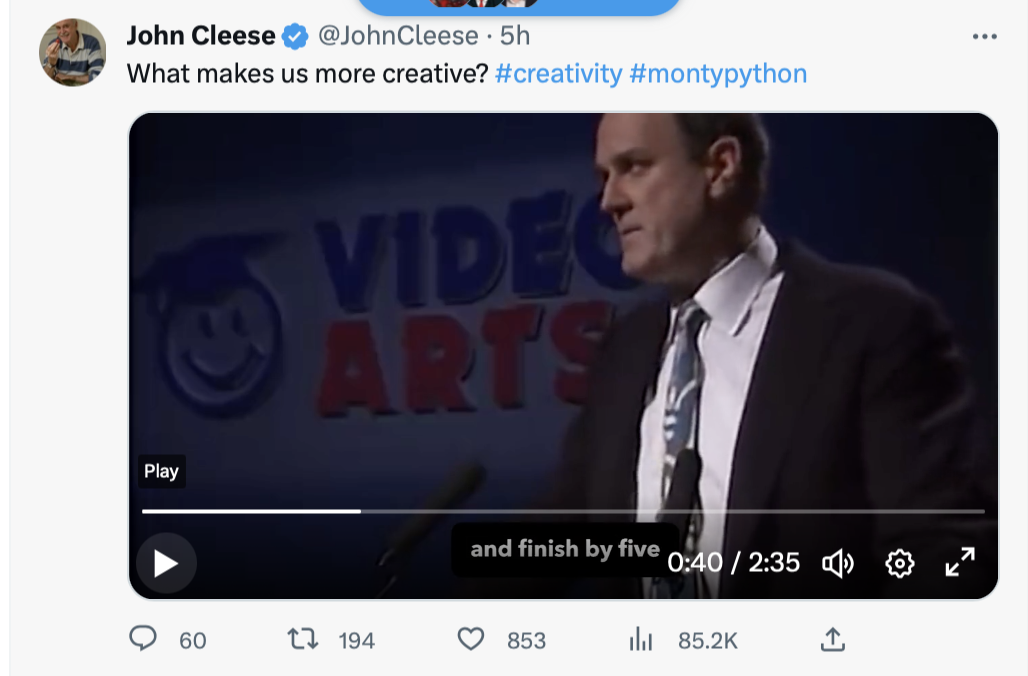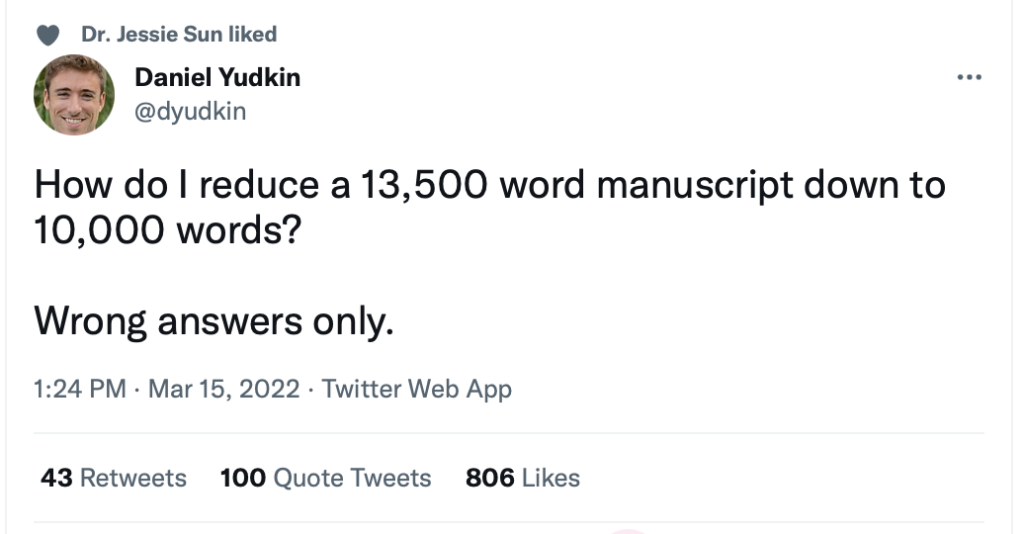John Cleese: Creativity is a Matter of Working Longer
How was John Cleese able to generate so many creative scripts for the Monty Python Flying Circus? He worked longer hours, which required that he put up with more discomfort. That was his formula, which he discusses in this short video:
In 2020, Cleese wrote a wrote a short and cheerful guide to creativity called Creativity: A Short and Cheerful Guide.
Here are a few of my favorite ideas from his book:
Definition of creativity: "Wherever you can find a way of doing things that is better than what has been done before, you are being creative."
"Creativity is elusive like a dim star – sometimes you can’t see it until we look away."
"Creativity often come when you least expect it. For instance, while leeping or taking a walk. To be creative, you often need to work in silence."
Creativity comes quietly – often it only whispers at you.
I began to realise that my unconscious was working on stuff all the time without my being consciously aware of it.And that's the problem with the unconscious. It is unconscious. The language of the unconscious is not verbal. It’s like the language of dreams. It shows you images, it gives you feelings, it nudges you around without you immediately knowing what it’s getting at.
There were only two differences between the creative and the uncreative architects. Creative architects knew how to play.Creative architects always deferred making decisions for as long as they were allowed.
The greatest killer of creativity is interruption. It pulls your mind away from what you want to be thinking about.
Creativity may come from inside, as you suddenly remember something that you’ve forgotten to do, or worry that time is running out, or that you don’t think you’re clever enough to solve whatever problem it is that you’re trying to deal with. This can paralyse you.
It is, however, very important that when you first have a new idea, you don’t get critical too soon. New and “woolly” ideas shouldn’t be attacked by your logical brain until they’ve had time to grow, to become clearer and sturdier. New ideas are rather like small creatures. They’re easily strangled.
I'll close with two more quotes about creativity:
“Inspiration is for amateurs. The rest of us just show up and get to work." Chuck Close
“Learn the rules like a pro, so you can break them like an artist” Attributed to Pablo Picasso.


